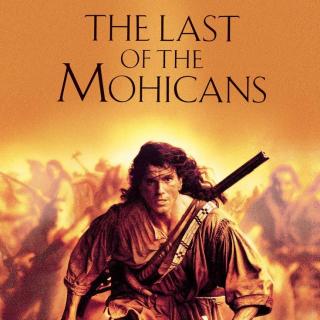
介绍:
CHAPTER I.
“Mine ear is open, and my heart prepared:
The worst is wordly loss thou canst unfold:—
Say, is my kingdom lost?”—Shakespeare
It was a feature peculiar to the colonial wars of North America, that the toils(艰难缓慢地移动; 跋涉) and dangers of the wilderness were to be encountered before the adverse(不利的; 有害的) hosts could meet. A wide and apparently an impervious boundary of forests severed the possessions of the hostile provinces of France and England. The hardy colonist, and the trained European who fought at his side, frequently expended months in struggling against the rapids of the streams, or in effecting the rugged passes of the mountains, in quest of an opportunity to exhibit their courage in a more martial conflict. But, emulating the patience and self-denial of the practiced native warriors, they learned to overcome every difficulty; and it would seem that, in time, there was no recess of the woods so dark, nor any secret place so lovely, that it might claim exemption from the inroads of those who had pledged their blood to satiate their vengeance, or to uphold the cold and selfish policy of the distant monarchs of Europe.
Perhaps no district throughout the wide extent of the intermediate frontiers can furnish a livelier picture of the cruelty and fierceness of the savage warfare of those periods than the country which lies between the head waters of the Hudson and the adjacent(与…毗连的; 邻近的) lakes.
The facilities which nature had there offered to the march of the combatants were too obvious to be neglected. The lengthened sheet of the Champlain stretched from the frontiers of Canada, deep within the borders of the neighboring province of New York, forming a natural passage across half the distance that the French were compelled to master in order to strike their enemies. Near its southern termination, it received the contributions of another lake, whose waters were so limpid(清澈的; 透明的) as to have been exclusively selected by the Jesuit missionaries to perform the typical purification of baptism, and to obtain for it the title of lake “du Saint Sacrément.” The less zealous English thought they conferred a sufficient honor on its unsullied fountains, when they bestowed the name of their reigning prince, the second of the house of Hanover. The two united to rob the untutored possessors of its wooded scenery of their native right to perpetuate its original appellation of “Horican.”
As each nation of the Indians had its language or its dialect, they usually gave different names to the same places, though nearly all of their appellations were descriptive of the object. Thus a literal translation of the name of this beautiful sheet of water, used by the tribe that dwelt on its banks, would be “The Tail of the Lake.” Lake George, as it is vulgarly, and now, indeed, legally, called, forms a sort of tail to Lake Champlain, when viewed on the map. Hence, the name.
Winding its way among countless islands, and imbedded in mountains, the “holy lake” extended a dozen leagues still further to the south. With the high plain that there interposed itself to the further passage of the water, commenced a portage of as many miles, which conducted the adventurer to the banks of the Hudson, at a point where, with the usual obstructions of the rapids, or rifts, as they were then termed in the language of the country, the river became navigable(可航行的; 适于通航的) to the tide.

